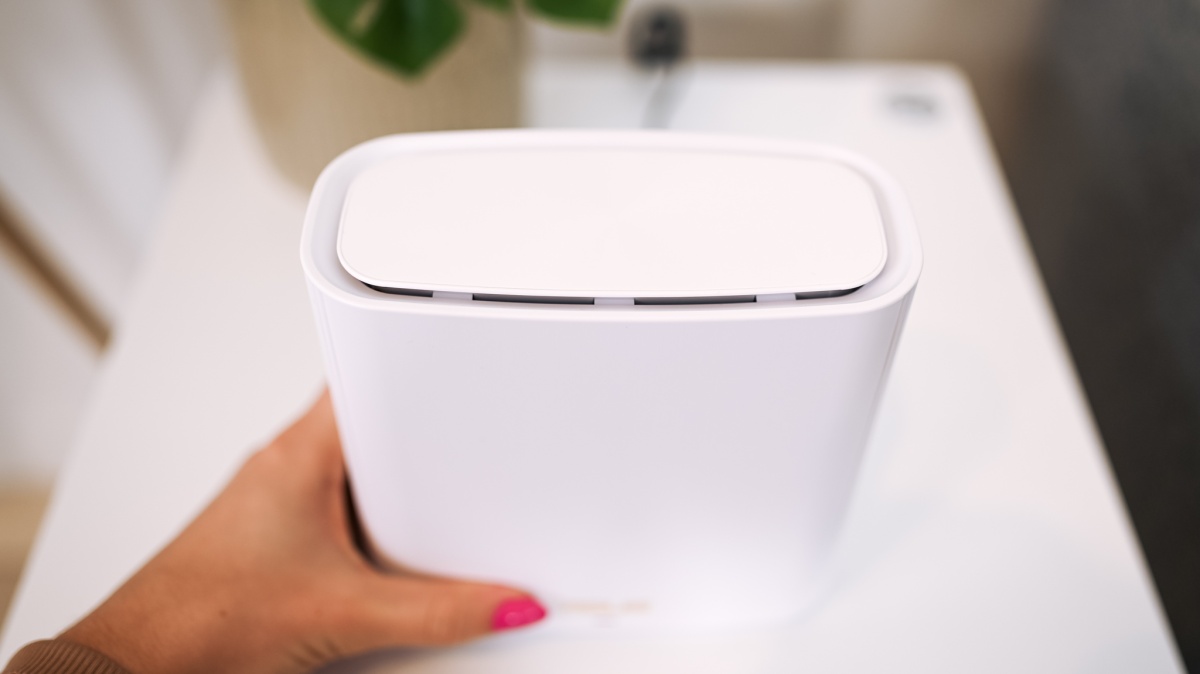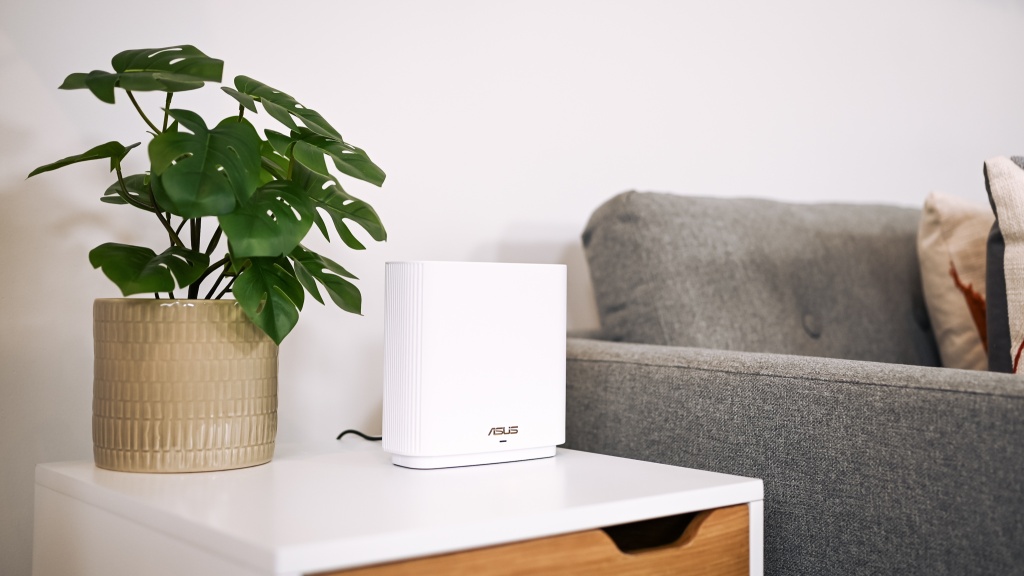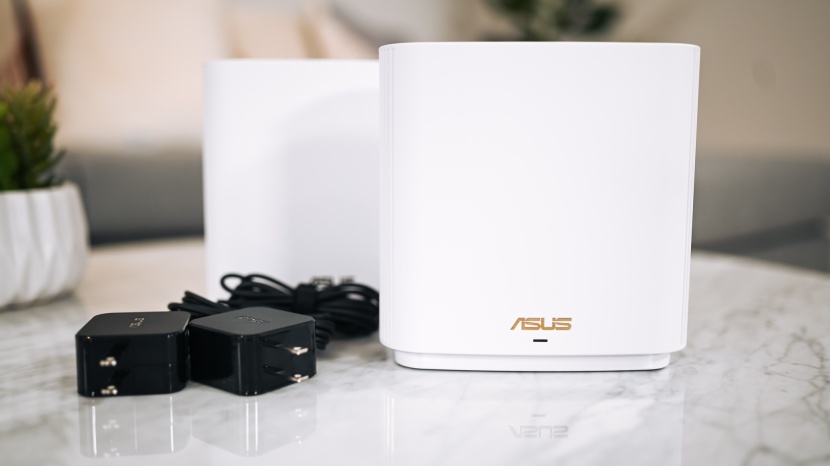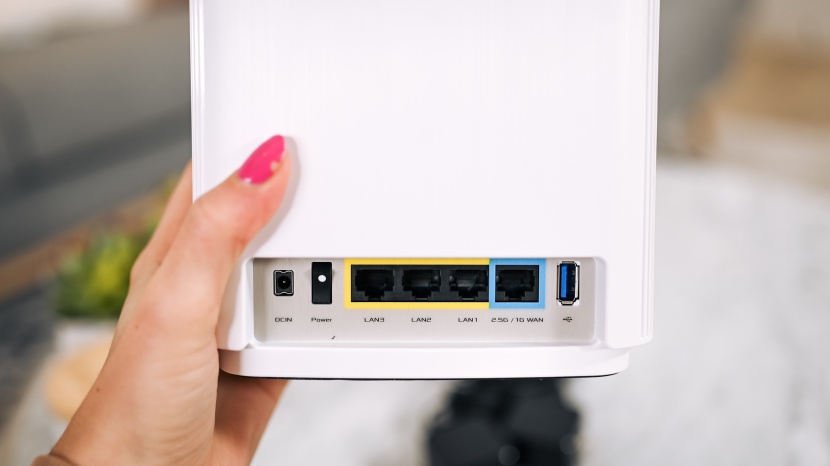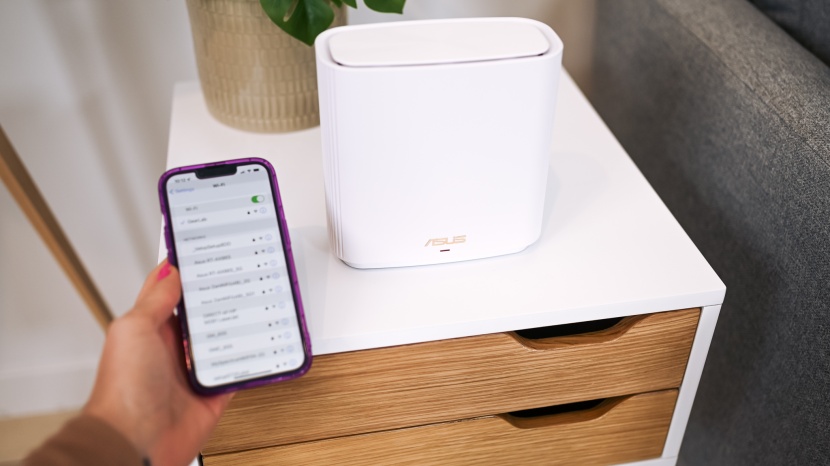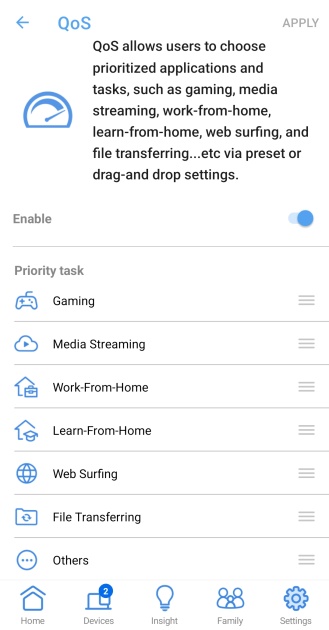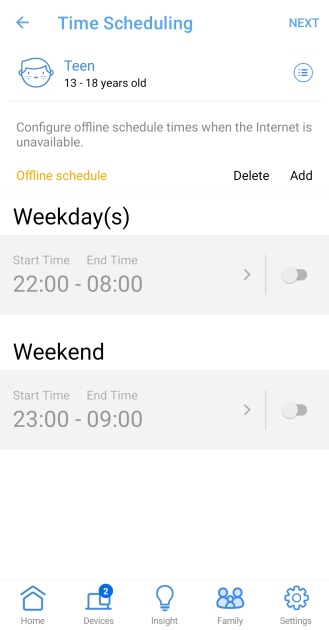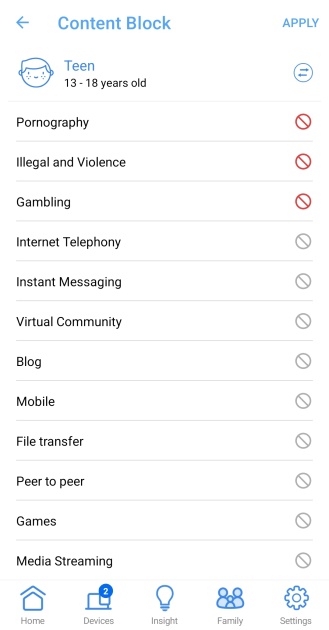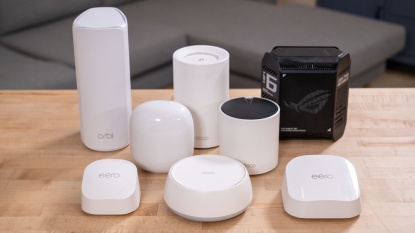
Our Verdict
Our Analysis and Test Results
The ASUS ZenWiFi (XT8) had some of the best features available in our test lineup. It is equipped with ASUS's AiMesh technology, giving you more connectivity and control over your WiFi network. The system did an average job in our throughput and range tests. However, it did extraordinarily well in our ease of use test. We found it quite easy to set up this system, as well as navigate QoS and parental controls.
2.4 GHz Throughput
We conducted a test for the 2.4 GHz throughput that measured connection speeds at three locations: nine, 35, and 70 feet away from the router. At each location, we created a barrier with a wall to get a more accurate idea of what the speeds would look like in a home.
For our 2.4 GHz throughput test, the ASUS ZenWifi had an average performance compared to the others in our lineup. During the short-range distance of nine feet, the speeds were below average at 85 Mbps. The speeds dropped slightly to roughly 79 Mbps at the mid-range point, but this value was still average among the others. At the 70-foot mark, this model was one of our top performers, with speeds of 19 Mbps.
5 GHz Throughput
Most homes will have dead spots where WiFi speeds are slow or simply don't reach. Often these dead spots are behind barriers like walls or furniture. Mesh systems aim to eliminate these dead spots by creating a blanketed network throughout the entire home. To test the efficacy of this, we sampled the throughput in multiple locations with and without obstructions. We started by testing the megabits per second (Mbps) at nine feet from the router. We obstructed this path with a wall and rechecked the speeds. We did this test again at 35 and 70 feet.
The ZenWiFi did great with our mid-range unobstructed test, with speeds reaching 311 Mbps. In every other location, this unit scored about average. The ZenWiFi is a tri-band mesh system. Most systems just have two bands: 2.4 GHz and 5 GHz. This system includes 2.4 GHz as well as two 5 GHz bands. This additional 5 GHz band adds extra bandwidth, which is great for those with lots of smart devices.
Range
To assess the range of these units, we connected to both 2.4 GHz and 5 GHz bands, repeating the tests for each. We pulled up the same YouTube video for every device and played it on 1080p. Without refreshing the page, we simply walked away from the router, noting the distance of when the video started to buffer.
The ASUS ZenWiFi did well in the test. On both the 2.4 and 5 GHz bands, the video began to load at 90 feet. The router is equipped with ASUS AiMesh technology. AiMesh is aimed at eliminating dead spots and creating a seamless network through multiple routers. If you already have an ASUS router, you can continue to use it with this feature, along with the new mesh system. AiMesh is easily set up in the ASUS app. It includes easy-to-understand metrics as well as those that are more advanced.
Ease of Use
The ASYS ZenWiFi (XT8) is the cream of the crop for ease of use. We were impressed by its simple setup, parental controls, WiFi settings, and quality of service (QoS). This was the quickest and easiest setup process of our lineup. Simply download the app, scan the QR code, then the app will walk you through an easy three-step setup. Within this three-step process, you'll be able to name your network and create an admin account. Additionally, this was one of the only systems in our lineup with the option to do the setup using a computer. This process was also fairly easy. You must first connect your router through the WiFi tab on your computer and navigate to the ASUS router page. The webpage will walk you through the rest of the setup. The website also includes helpful setup videos. Though the app makes this process far more streamlined, we appreciated the option to set up the mesh system in an alternative way.
The ZenWiFi includes advanced parental controls. Within these controls, you'll be able to manage specific devices, block access to websites or apps, and schedule internet off-time. We particularly liked the scheduling feature. It is easy to select specific devices to create internet breaks. You are able to create weekday, weekend, and custom day schedules. This is a great feature for those who want the kids to be sleeping at bedtime, not browsing the internet. Additionally, you can block internet access to specific devices or all devices with one click.
We were particularly impressed with the QoS options for this system. ASUS includes three options for QoS: adaptive QoS, traditional QoS, and a bandwidth limiter. Through adaptive QoS, we were able to choose where more of the bandwidth went. For example, we could select more for gaming, streaming, or working from home. The system then takes care of the rest behind the scenes. The traditional QoS is the default, allowing online gaming and web surfing the highest priority. The bandwidth limiter allows the user to limit upload and download speeds for specific devices. While these QoS options might sound complicated, we found them very easy to use.
Should you buy the ASUS ZenWiFi (XT8)?
The ASUS ZenWiFi is the top performer when it comes to ease of use and features. The parental controls and QoS options were the best we tested and will likely be very useful to many. The system is future-proof, with WiFi 6 compatibility, MU-MIMO, and OFDMA. This system is on the pricier side, which might be worth it if you have a number of WiFi 6 devices or plan to acquire some. We also think these features are great for parents who want to control how much access their kids have. If you don't care for the fanciest features or WiFi 6, this mesh system might not be worth the hefty investment.
What other WiFi Mesh Systems Should You Consider?
We tested and reviewed a number of other WiFi mesh systems. The Linksys Atlas Pro 6 is in the same price range and has many of the same features. It has decent parental controls, QoS, and WiFi settings. This system excelled in our throughput and range tests. If you're looking for a cheaper option and don't care about WiFi 6, check out the Google Nest WiFi. This top-performing system is great for those who have Google smart homes or are looking to build one.


